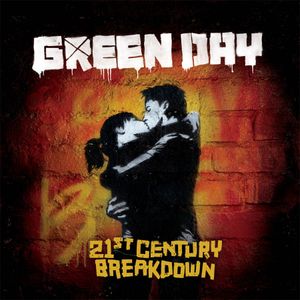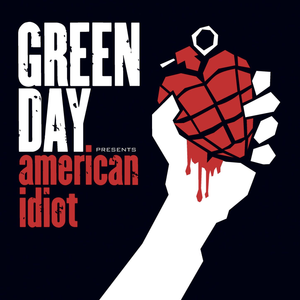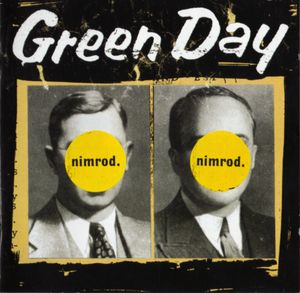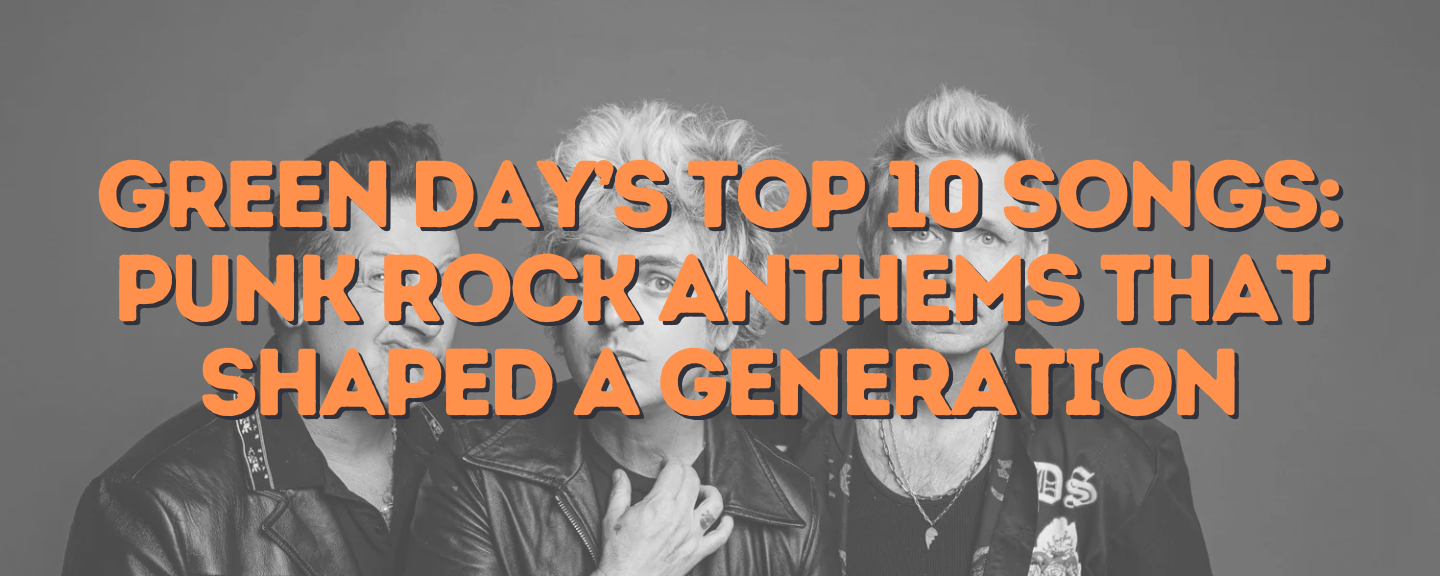
Green Day’s Top 10 Songs: Punk Rock Anthems
Listen on Spotify
Green Day: From Bay Area Punk to Global Rock Icons
Green Day, the undisputed kings of pop-punk, emerged from the vibrant Bay Area punk scene of the late 80s. Founded in 1987 by the dynamic duo of Billie Joe Armstrong (vocals, guitar) and Mike Dirnt (bass, backing vocals), the band initially went by the names Blood Rage and Sweet Children before settling on Green Day in 1989. They quickly became fixtures at the legendary 924 Gilman Street club in Berkeley, a hotbed for the burgeoning punk movement.
Their early recordings, released through Lookout! Records, showcased their raw energy and catchy melodies. Their debut album, 39/Smooth (1990), established their raw talent and laid the groundwork for their future success. The arrival of drummer Tré Cool in 1990, replacing John Kiffmeyer, solidified their classic power trio lineup.
The game-changer arrived in 1994 with Dookie, their major label debut on Reprise Records. The album exploded, selling over 10 million copies in the U.S. alone, and propelled Green Day into the mainstream. They became synonymous with the punk revival alongside fellow California bands like Bad Religion, the Offspring, Rancid, NOFX, Pennywise, and Social Distortion.
Dookie cemented their status as rock stars, but Green Day continued to push boundaries. Insomniac (1995), Nimrod (1997), and Warning (2000) all achieved significant success, though they didn't quite match the phenomenal heights of Dookie.
Their seventh album, American Idiot (2004), marked a new chapter. This ambitious rock opera resonated deeply with a younger generation, selling six million copies in the U.S. and solidifying their status as a true rock force.
Green Day's momentum continued with 21st Century Breakdown (2009), their most commercially successful album to date, boasting their best chart performance ever. The band then embarked on a bold experiment with the ¡Uno!, ¡Dos!, ¡Tré! trilogy (2012), a three-part album release. While the trilogy didn't quite reach the commercial heights of their previous efforts, it solidified their enduring creative spirit.
Green Day's journey has been one of constant evolution. From their humble beginnings in the Bay Area punk scene to their global domination as rock icons, they have consistently delivered catchy tunes, powerful lyrics, and unforgettable live shows. They remain a force to be reckoned with, continuously inspiring new generations of musicians and fans alike.
From the high-octane riffs on Dookie to the dramatic storytelling of American Idiot, Green Day has built a legacy on melodic hooks, raw energy, and searing social commentary. In this countdown, we’ll explore ten of their most influential and enduring tracks, each capturing the band’s knack for fusing catchy punk-rock immediacy with universal themes—angst, rebellion, and the search for identity. Whether you’re revisiting old favorites or discovering them for the first time, these songs showcase why Green Day remains a defining force in modern rock.
Selection Criteria
These songs were selected based on cultural impact, musical innovation, streaming popularity, and their significance in the band's discography.
The Top 3
21 Guns
21st Century Breakdown • 2009Featured on 21st Century Breakdown, “21 Guns” is a sweeping anti-war ballad that channels the sense of futility and hopelessness surrounding conflict and personal strife. The track begins softly, with Billie Joe’s plaintive vocals, and escalates into a full-band crescendo featuring lush harmonies and a driving rhythm. This alternating dynamic between hushed introspection and grand orchestration underscores the emotional stakes at play. What makes “21 Guns” excellent is its universal plea for reconciliation and peace—both globally and within personal relationships. The melodic chorus is instantly memorable, mirroring the internal tug-of-war between resignation and hope. It’s another example of Green Day’s ability to evolve beyond straightforward punk rock, utilizing broader stylistic elements while retaining their core identity. With its stirring lyrics and arena-ready sound, “21 Guns” capably demonstrates that Green Day’s anthemic sensibilities remain intact decades into their career.
Longview
Dookie • 1994“Longview” announced Green Day’s arrival on the mainstream music scene in 1994 with a bass intro that’s as iconic as it is groovy. This track off Dookie explores themes of boredom, teenage angst, and self-gratification, painting a portrait of suburban ennui that resonated with disillusioned youth. Billie Joe’s snarling vocals perfectly capture the frustration of feeling trapped in a dull routine, yearning for something—or anything—to break the monotony. Its excellence lies in its frank, unapologetic tone combined with an undeniable hook. The lyrics are blunt in discussing taboo topics, while the music keeps things energetic and fun. In many ways, “Longview” serves as the blueprint for Green Day’s style: catchy pop-punk tunes that hide darker, more provocative themes beneath their peppy surface. As the song that essentially launched their worldwide success, it remains a testament to the band’s willingness to be unapologetically honest.
Jesus of Suburbia
American Idiot • 2004At over nine minutes long, “Jesus of Suburbia” is a multi-part punk-rock epic that forms the heart of American Idiot. Structurally, it’s divided into distinct sections that traverse different tempos, melodies, and lyrical perspectives, effectively creating a mini-rock opera within a single track. Thematically, it follows the disillusioned protagonist, exploring suburban boredom, teenage rebellion, and the search for identity in a world that feels increasingly hollow. The sheer ambition of “Jesus of Suburbia” makes it a standout. Green Day dared to break from standard radio formats and crafted a song that brims with grandiosity yet retains the immediacy of their pop-punk roots. Each section has its own hook, and the transitions flow with surprising cohesiveness. The track’s brilliance lies in its scope: it serves as both an emotional journey and a critique of modern American life. By embedding social commentary within a narrative-driven structure, Green Day elevated punk to theatrical heights.
Honorable Mentions
Holiday
Triumphant and brash, “Holiday” is an unabashed rallying cry on American Idiot. The song’s main riff and punchy drum beat exude a sense of rebellious joy, while the lyrics critique political leaders and the complacency that allows questionable policies to go unchecked. Billie Joe Armstrong’s delivery feels both playful and pointed—he’s simultaneously encouraging listeners to celebrate freedom and resist blind conformity. “Holiday” stands out for its theatrical flair and anthemic structure, anchored by a mid-song breakdown featuring mock political rhetoric. It’s excellent because it marries punk’s tradition of confrontation with a radio-friendly sheen, turning social commentary into something catchy and danceable. As part of the American Idiot narrative, “Holiday” also sets the stage for the album’s conceptual journey, proving that Green Day can fuse entertainment, activism, and storytelling into one cohesive package.
Wake Me Up When September Ends
Another highlight from American Idiot, “Wake Me Up When September Ends” is a heartfelt tribute to Billie Joe Armstrong’s late father, who passed away when he was a child. Musically, it starts off delicately with an acoustic intro and gradually builds to an emotive climax featuring soaring electric guitars and a driving drumbeat. This gradual crescendo mirrors the emotional journey of coping with loss—starting in quiet reflection and culminating in a powerful release of grief. Its excellence stems from the raw sincerity of the lyrics, which delve into the pain of remembering a loved one while the world continues to move forward. Despite the personal origins, the track took on broader significance, especially after Hurricane Katrina and other tragedies that occurred around the song’s release. “Wake Me Up When September Ends” underscores Green Day’s ability to blend personal storytelling with universal relevance, solidifying their status as punk rockers with genuine emotional depth.
Good Riddance (Time of Your Life)
A stark departure from the electrified punk anthems that put Green Day on the map, “Good Riddance (Time of Your Life)” is an acoustic ballad that highlights the band’s softer side. The stripped-down arrangement places Billie Joe’s introspective lyrics at the forefront, turning what might be a simple goodbye into a contemplative piece on life’s passing moments. Originally released on Nimrod, the song quickly took on a life of its own—played at graduations, weddings, and farewells around the world. The brilliance of “Good Riddance” lies in its deceptive simplicity. With just an acoustic guitar and a string section, Green Day proved they could craft a deeply personal track that transcended the boundaries of punk. The melody is instantly recognizable, and the sentiment—moving on with no regrets—strikes a universal chord. Despite initial skepticism from some fans about an acoustic Green Day song, it became one of the band’s most iconic and frequently covered tracks, showcasing their ability to evolve while retaining emotional authenticity.
When I Come Around
Off the breakout album Dookie, “When I Come Around” remains one of Green Day’s most enduring radio staples. The mid-tempo groove sets it apart from faster cuts on the record, showcasing a more laid-back approach that still retains the essential punk spirit. Billie Joe Armstrong’s vocal delivery is melodic and earnest, speaking directly to the highs and lows of romantic relationships. The song’s catchiness is further bolstered by a straightforward structure that builds to a sing-along chorus—perfect for both mosh pits and car stereos. What makes “When I Come Around” so excellent is how it encapsulates the youthful optimism and angst of the early ’90s. While not as frenetic as “Basket Case” or “Longview,” it still captures the same rebellious energy in a more measured, radio-friendly package. Its timeless riff and universal message about the strains of maintaining a connection—especially when physically separated—continue to resonate, proving that simplicity often has the most staying power in punk-rock anthems.
Boulevard of Broken Dreams
Featured on American Idiot, “Boulevard of Broken Dreams” reveals a more reflective side of Green Day. The song’s opening guitar riff and subdued drum beat create a solitary, almost haunting atmosphere that contrasts sharply with the album’s more raucous tracks. Lyrically, it’s an anthem for anyone who’s ever felt alone or out of place—yet the soaring chorus provides a sense of camaraderie among outsiders. This tension between loneliness and hope makes the track both relatable and uplifting. In terms of excellence, “Boulevard of Broken Dreams” demonstrates the band’s skill at blending alternative rock and punk influences to craft a mainstream hit. Its polished production, introspective lyrics, and memorable hook propelled it to massive radio success, winning a Grammy for Record of the Year. By striking a balance between vulnerability and arena-ready power, Green Day proved that their sound could evolve without losing the emotional depth that first endeared them to fans.
American Idiot
“American Idiot” served as the fiery mission statement for the band’s 2004 album of the same name—an ambitious punk rock opera that took a hard look at American society and politics post-9/11. The track opens with driving power chords and a marching drum pattern that telegraphs both urgency and rebellion. Billie Joe’s lyrics criticize the oversaturation of media and the dumbing down of public discourse, making it a wake-up call to question mainstream narratives. Its rallying cry of “Don’t wanna be an American idiot!” became an anthem for a generation disenchanted with the status quo. Beyond its political edge, “American Idiot” highlights Green Day’s growth in songwriting complexity. The structure remains firmly rooted in punk, but there’s a crispness to the production and a theatrical flair in the arrangement that sets it apart from their earlier work. This blend of audacity and melody, combined with a scathing critique of modern life, cemented Green Day’s relevance in the 2000s and sparked a cultural conversation that went far beyond the typical punk-rock fan base.
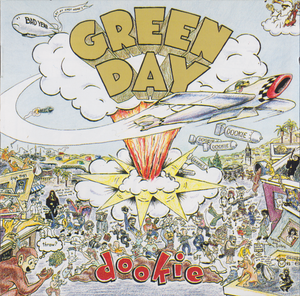
Basket Case
“Basket Case” is arguably the quintessential Green Day track—an explosive burst of pop-punk energy from the band’s major-label debut, Dookie. The guitar intro immediately grabs your attention, rolling into a fast-paced verse where Billie Joe Armstrong delivers lyrics detailing paranoia and anxiety. Tré Cool’s frenetic drumming and Mike Dirnt’s driving bass lines form a tight rhythm section that underscores the emotional turbulence of the song. This combination of confessional lyricism and infectious melody quickly struck a chord with a generation grappling with self-doubt. What truly makes “Basket Case” excellent is its perfect balance of raw, punk urgency and radio-friendly hooks. It encapsulates the band’s knack for blending serious themes—mental health struggles, in this case—with an irreverent, melodic approach. Thanks to its catchy refrain and memorable music video set in a surreal mental institution, “Basket Case” launched Green Day into mainstream consciousness. Decades later, it still resonates with anyone who’s ever questioned their own sanity amid life’s chaos.
Final Thoughts
This ranking represents the pinnacle of Green Day’s Top 10 Songs: Punk Rock Anthems artistic achievement. Each song has earned its place through a combination of cultural impact, musical innovation, and enduring popularity.
Cultural Impact
Songs that shaped music history and influenced countless artists
Fan Favorites
Tracks with millions of streams and lasting popularity across generations
Watch Related Video
Last Updated: 3/22/2025

